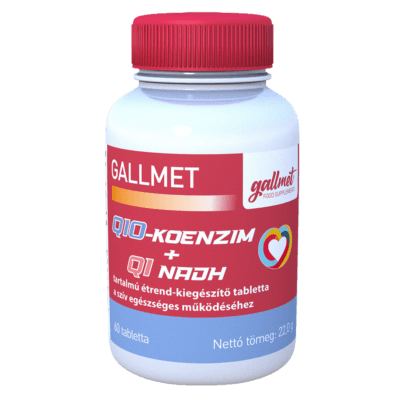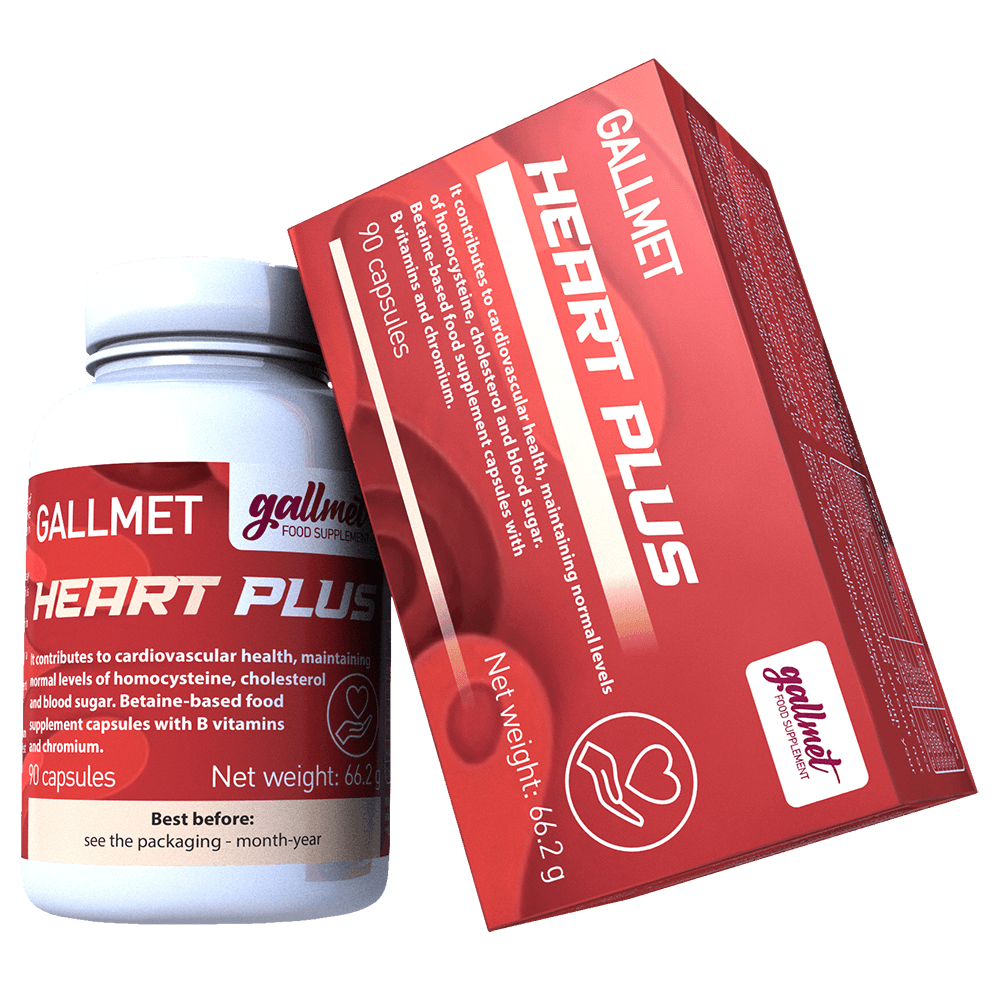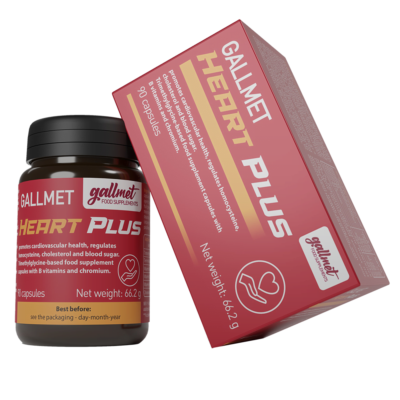Association of cardiovascular diseases (heart attack, stroke, etc.) with high homocysteine levels
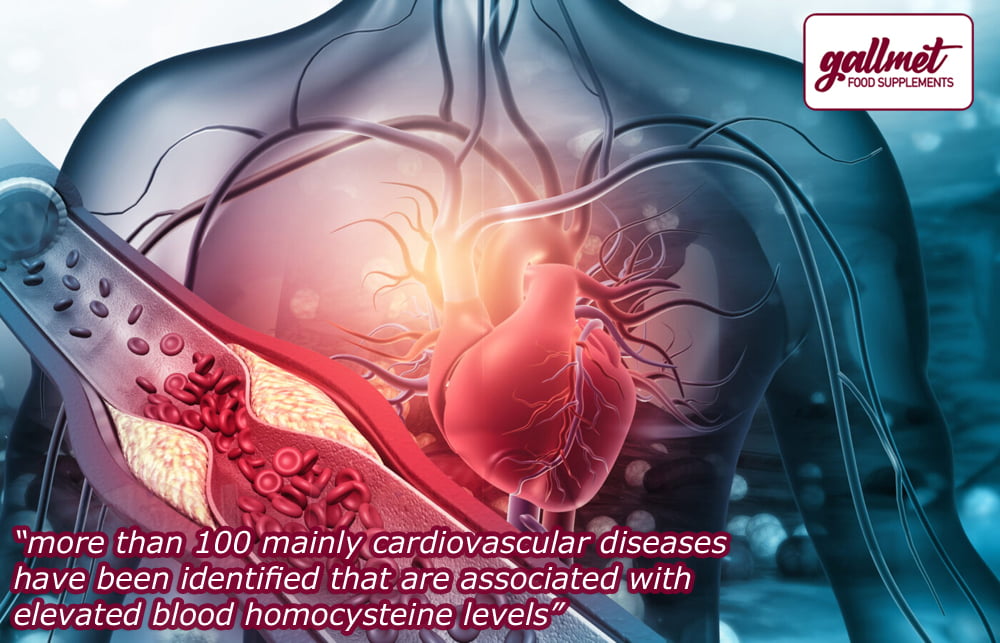
Cardiovascular disease causes almost half of all deaths in EU!1 More than 80% of deaths from cardiovascular causes are attributed to heart attacks and strokes, with about 1/3 of deaths occurring in people under 70 years of age.2 Elevated blood homocysteine levels are a risk factor for cardiovascular disease independent of traditional risk factors and can be used to predict disease development and assess risk.3, 4, 5, 6
Homocysteine is an amino acid that is essential for normal cellular function, but high homocysteine levels have undesirable effects. More than 100 mainly cardiovascular diseases or conditions have been identified that are associated with elevated blood plasma homocysteine levels.7
Read more HERE about homocysteine!
Should I care about my homocysteine levels if I have already developed any of the symptoms listed below?
- Atherosclerosis and vasoconstriction (atherosclerosis, arteriosclerosis),
- heart disease (angina pectoris, heart attack),
- stroke,
- vascular blockage (thrombosis, embolism),
- abnormal blood fat (dyslipidemia, high LDL cholesterol, high triglycerides),
- high blood pressure (hypertension).
Yes, it is worth looking after your blood homocysteine levels because:
- Abnormal elevation of blood homocysteine levels increases the risk of atherosclerosis in the arteries of the limbs, the coronary arteries of the heart and the cerebral circulatory system and increases the risk of serious complications.
- High levels of homocysteine damage the inner surface of blood vessels (endothelium), one of whose functions is to produce vasodilators that regulate blood flow. Deterioration of endothelial function is associated with an increased susceptibility to thrombosis (blockage of blood vessels).8
- High homocysteine significantly increases the damaging effects of abnormal blood fat, high blood pressure, smoking and diabetes. The elevation of blood homocysteine levels is equivalent to that of cholesterol in terms of vascular damage.9, 10
- Keeping homocysteine levels low can significantly slow down the growth of atherosclerosis (plaque) and improve heart function.11
How can I tell if I am affected and have high homocysteine levels?

- Alzheimer's disease,
- Parkinson's disease,
- dementia,
- thrombosis,
- cerebrovascular diseases,
- cardiovascular diseases,
- Cancer,
- serious or fatal outcome SARS-Cov2 infection.
Dr. Antal Miklós Várhalmi, product developer, talks about the role of homocysteine in the TV2 Életmódi programme
Our Advice Line: 06-79-326-581 (Hungarian only)
How do I know for sure if I have high homocysteine levels or if I have inherited the MTHFR C677T gene defect?
- Laboratory tests: Synlab homocysteine, Synlab-MTHFR mutation
What can I do to prevent or reduce the risk of cardiovascular disease?

The most important things to do are:
- not smoking,
- at least 30 minutes of active exercise a day,
- a diet rich in vegetables and wholemeal bakery products,
- reduce fat consumption, avoid obesity,
- blood pressure should be below 140/90 mm Hg,
- total cholesterol should be below 5 mmol/l. - Source: cdc.gov - Heart and vascular system
- in 20% of coronary artery diseases,
- in 40% of cerebrovascular disease,
- in 60% of diseases of the endothelial vessels.
GALLMET HEART PLUS capsules contain folate (vitamin B9), betaine, vitamins B6 and B12 in amounts that reduce elevated blood homocysteine levels, contributing to normal heart and vascular function, which can maintain heart and circulatory health.💊
Betaine, vitamin B9 (folate), vitamin B12 and B6 is safe and cost-effective for reducing high blood pressure and stroke. It can help to reduce blood pressure by up to 6-13 mm Hg! Successful treatment of resistant hypertension is essential to safely reduce damage to the heart, brain and vision.15
A 5 ~mol/l reduction in blood homocysteine levels is estimated to reduce the risk of cardiovascular disease by 20-30%. A diet rich in betaine may be effective in reducing the risk of cardiovascular disease.16 Supplementation with betaine is most important when used in patients who do not respond to vitamin B6 supplementation and those who do not follow a low protein and low methionine diet.17
Terminalia chebula - a traditional Ayurvedic herb - can significantly reduce vascular damage caused by type 2 diabetes, increase blood HDL cholesterol (good cholesterol), lower LDL cholesterol (bad cholesterol) and significantly improve other cardiovascular risks.18, 19
Chromium is a trace element that contributes to the achievement of adequate levels of blood lipids by reducing total cholesterol, thus supporting the prevention of cardiovascular disease.20, 21 By taking chromium picolinate, blood cholesterol and blood fat levels can be significantly improved.22, 23
We recommend GALLMET Q10 coenzyme + Q1 NADH as a complementary product
Vitamins Q, including Q10 and Q1, are essential coenzymes involved in many cellular functions. Their main function is to support energy production, which is essential for the proper functioning of organs.
The benefits of vitamin Q:
- Energy boost: Reduces fatigue and increases performance.
- Heart protection: It helps maintain healthy blood pressure and protects against heart disease.
- Strengthening the immune system: Supports the proper functioning of the immune system.
- Antioxidant effect: protects cells from oxidative stress, because when we are under stress or sickness and free radicals increase and the body cannot produce enough antioxidants, Q10 can make up for it.
- Anti-ageing: It can help slow down the ageing process.
TRY GALLMET HEART PLUS CAPSULES NOW AT A SPECIAL INTRODUCTORY PRICE!
Click on the [print-me] icon to print the page
[1] Global, Regional, and National Burden of Cardiovascular Diseases for 10 Causes, 1990 to 2015 - Roth GA, Johnson C, Abajobir A, Abd-Allah F, Abera SF, Abyu G, Ahmed M, Aksut B, Alam T, Alam K, Alla F, Alvis-Guzman N, Amrock S, Ansari H, Ärnlöv J, Asayesh H, Atey TM, Avila-Burgos L, Awasthi A, Banerjee A, Barac A, Bärnighausen T, Barregard L, Bedi N, Belay Ketema E, Bennett D, Berhe G, Bhutta Z, Bitew S, Carapetis J, Carrero JJ, Malta DC, Castañeda-Orjuela CA, Castillo-Rivas J, Catalá-López F, Choi JY, Christensen H, Cirillo M, Cooper L, Criqui M, Cundiff D, Damasceno A, Dandona L, Dandona R, Davletov K, Dharmaratne S, Dorairaj P, Dubey M, Ehrenkranz R, El Sayed Zaki M, Faraon EJA, Esteghamati A, Farid T, Farvid M, Feigin V, Ding EL, Fowkes G, Gebrehiwot T, Gillum R, Gold A, Gona P, Gupta R, Habtewold TD, Hafezi-Nejad N, Hailu T, Hailu GB, Hankey G, Hassen HY, Abate KH, Havmoeller R, Hay SI, Horino M, Hotez PJ, Jacobsen K, James S, Javanbakht M, Jeemon P, John D, Jonas J, Kalkonde Y, Karimkhani C, Kasaeian A, Khader Y, Khan A, Khang YH, Khera S, Khoja AT, Khubchandani J, Kim D, Kolte D, Kosen S, Krohn KJ, Kumar GA, Kwan GF, Lal DK, Larsson A, Linn S, Lopez A, Lotufo PA, El Razek HMA, Malekzadeh R, Mazidi M, Meier T, Meles KG, Mensah G, Meretoja A, Mezgebe H, Miller T, Mirrakhimov E, Mohammed S, Moran AE, Musa KI, Narula J, Neal B, Ngalesoni F, Nguyen G, Obermeyer CM, Owolabi M, Patton G, Pedro J, Qato D, Qorbani M, Rahimi K, Rai RK, Rawaf S, Ribeiro A, Safiri S, Salomon JA, Santos I, Santric Milicevic M, Sartorius B, Schutte A, Sepanlou S, Shaikh MA, Shin MJ, Shishehbor M, Shore H, Silva DAS, Sobngwi E, Stranges S, Swaminathan S, Tabarés-Seisdedos R, Tadele Atnafu N, Tesfay F, Thakur JS, Thrift A, Topor-Madry R, Truelsen T, Tyrovolas S, Ukwaja KN, Uthman O, Vasankari T, Vlassov V, Vollset SE, Wakayo T, Watkins D, Weintraub R, Werdecker A, Westerman R, Wiysonge CS, Wolfe C, Workicho A, Xu G, Yano Y, Yip P, Yonemoto N, Younis M, Yu C, Vos T, Naghavi M, Murray C. https://pubmed.ncbi.nlm.nih.gov/28527533/
[2] Elevated homocysteine levels in patients with heart failure: a systematic review and meta-analysis - Jin N, Huang L, Hong J, Zhao X, Chen Y, Hu J, Cong X, Xie Y, Pu J. https://pubmed.ncbi.nlm.nih.gov/34414939/
[3] PON1 status and homocysteine levels as potential biomarkers for cardiovascular disease - Ponce-Ruiz N, Murillo-González FE, Rojas-García AE, Barrón-Vivanco BS, Bernal-Hernández YY, González-Arias CA, Ortega-Cervantes L, Ponce-Gallegos J, López-Guarnido O, Medina-Díaz https://pubmed.ncbi.nlm.nih.gov/32827712/
[4] The association between homocysteine levels and cardiovascular disease risk among middle-aged and elderly adults in Taiwan. - Shih CC, Shih YL, Chen JY. https://pubmed.ncbi.nlm.nih.gov/33879044/
[5] Hyperhomocysteinemia as an Independent Risk Factor for Coronary Heart Disease: Comparison with Conventional Risk Factors. - Muzaffar R, Khan MA, Mushtaq MH, Nasir M, Khan A, Haq IU, Muhammad J. https://www.scielo.br/j/bjb/a/t7MnTLxYGHcvJ9FzbkqFF6f/?lang=en
[6] The role of homocysteine in the pathogenesis of early-onset ischaemic heart disease - Dr. Lajos Szollár http://real.mtak.hu/62/1/34815_ZJ1.pdf
[7] Homocysteine - from disease biomarker to disease prevention - Smith AD, Refsum H. https://onlinelibrary.wiley.com/doi/10.1111/joim.13279
[8] Endothelial Dysfunction: The Link Between Homocysteine and Hydrogen Sulfide - Sathnur Pushpakumar, Sourav Kundu and Utpal Sen https://www.ncbi.nlm.nih.gov/pmc/articles/PMC5539954/
[9] Homocysteine - a risk factor for atherosclerosis - Dr. László Debreceni - Medical Weekly_2001.07.08. issue 27. http://real-j.mtak.hu/11264/
[10] The role of homocysteine in the pathogenesis of early-onset ischaemic heart disease - Dr. Lajos Szollár http://real.mtak.hu/62/1/34815_ZJ1.pdf
[11] Homocysteine - a risk factor for atherosclerosis - Dr. László Debreceni - Medical Weekly_2001.07.01. issue 27. http://real-j.mtak.hu/11264/
[12] Homocysteine metabolism as the target for predictive medical approach, disease prevention, prognosis, and treatments tailored to the person - Koklesova L, Mazurakova A, Samec M, Biringer K, Samuel SM, Büsselberg D, Kubatka P, Golubnitschaja O. https://www.ncbi.nlm.nih.gov/pmc/articles/PMC8581606/
[13] Homocysteine and the SARS-CoV-2 Coronavirus - the X Factor of Severe Disease and Death - Nancy Lord & Mary Ruwart https://papers.ssrn.com/sol3/papers.cfm?abstract_id=3708654
[14] Homocysteine - a risk factor for atherosclerosis - Dr. László Debreceni - Medical Weekly_2001.07.01. issue 27. http://real-j.mtak.hu/11264/
[15] New Evidence for Homocysteine Lowering for Management of Treatment-Resistant Hypertension - Merrill F. Elias and Craig J. Brown. https://academic.oup.com/ajh/article/35/4/303/6475983
[16] Human Nutrition and Metabolism Research Communication - Margreet R. Olthof, Trinette van Vliet, Esther Boelsma and Petra Verhoef https://academic.oup.com/jn/article/133/12/4135/4687457
[17] Health Functionalities of Betaine in Patients With Homocystinuria - Truitt C, Hoff WD, Deole R. https://www.ncbi.nlm.nih.gov/pmc/articles/PMC8459993/
[18] Effect of an aqueous extract of Terminalia chebula on endothelial dysfunction, systemic inflammation, and lipid profile in type 2 diabetes mellitus: A randomized double-blind, placebo-controlled clinical study - Usharani Pingali, Deepasree Sukumaran, Chandrasekhar Nutalapati https://onlinelibrary.wiley.com/doi/10.1002/ptr.6771
[19] Hypolipidemic Effect of Triphala in Experimentally Induced Hypercholesteremic Rats - Selvaraj Saravanan, Ramasundaram Srikumar, Sundaramahalingam Manikandan, Narayanaperumal Jeya Parthasarathy and Rathinasamy Sheela Devi https://www.jstage.jst.go.jp/article/yakushi/127/2/127_2_385/_article
[20] Elevated Intakes of Supplemental Chromium Improve Glucose and Insulin Variables in Individuals With Type 2 Diabetes - Richard A. Anderson, Nanzheng Cheng, Noella A. Bryden, Marilyn M. Polansky, Nanping Cheng, Jiaming Chi and Jinguang Feng https://diabetesjournals.org/diabetes/article/46/11/1786/10196/Elevated-Intakes-of-Supplemental-Chromium-Improve
[21] Chromium, Glucose Intolerance and Diabetes - Richard A. Anderson https://paulogentil.com/pdf/Chromium%2C%20Glucose%20Intolerance%20and%20Diabetes.pdf
[22] The effect of chromium picolinate on serum cholesterol and apolipoprotein fractions in human subjects - Raymond Press MD, Jack Geller MD And Gary W. Evans PhD https://www.ncbi.nlm.nih.gov/pmc/articles/PMC1002252/
[23] Beneficial Effect of Chromium Supplementation on Serum Triglyceride Levels in NIDDM - Nancy A. Lee MD, Charles A. Reasner MD https://diabetesjournals.org/care/article/17/12/1449/18598/Beneficial-Effect-of-Chromium-Supplementation-on
All health recommendations related to homocysteine level

Homocysteine
About homocysteine - a little biochemistry and history
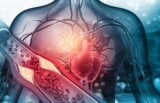
Circulatory disorders
Association of cardiovascular diseases with homocysteine levels
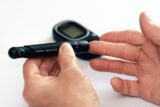
Diabetes
Association between diabetes and blood homocysteine levels

Metabolic syndrome
Association between metabolic syndrome and homocysteine levels

Gout
Association of gout with kidney damage and homocysteine levels in the blood

Neuro-degenerative diseases
In case of Alzheimer's disease, Parkinson's disease and dementia

Coronavirus infection
Association between severe coronavirus infection and high homocysteine levels

Cancer
Association of cancer with insufficient vitamin B9 utilisation
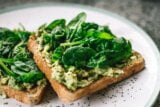
Folic acid or folate
Folic acid or folate - what's the difference?


